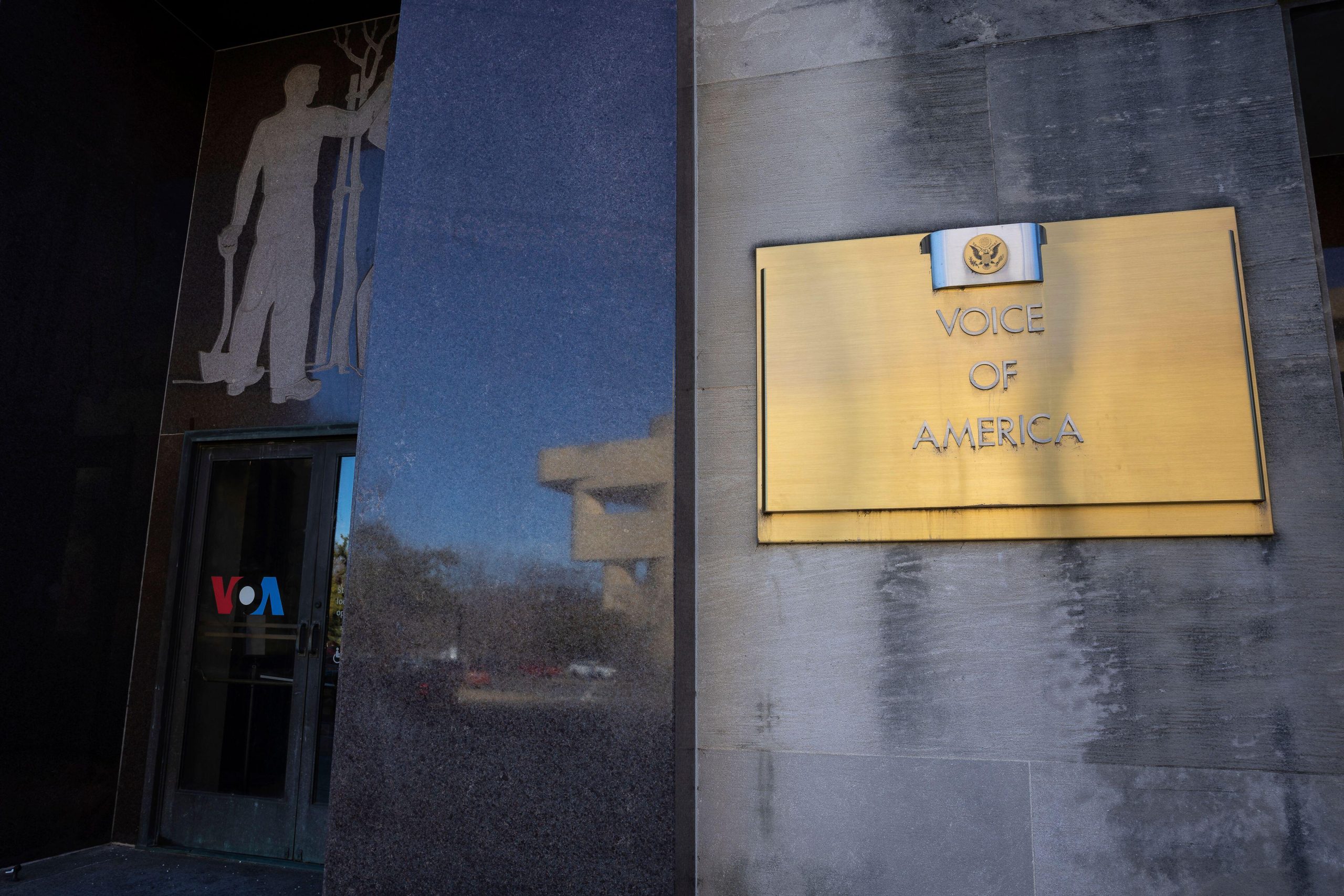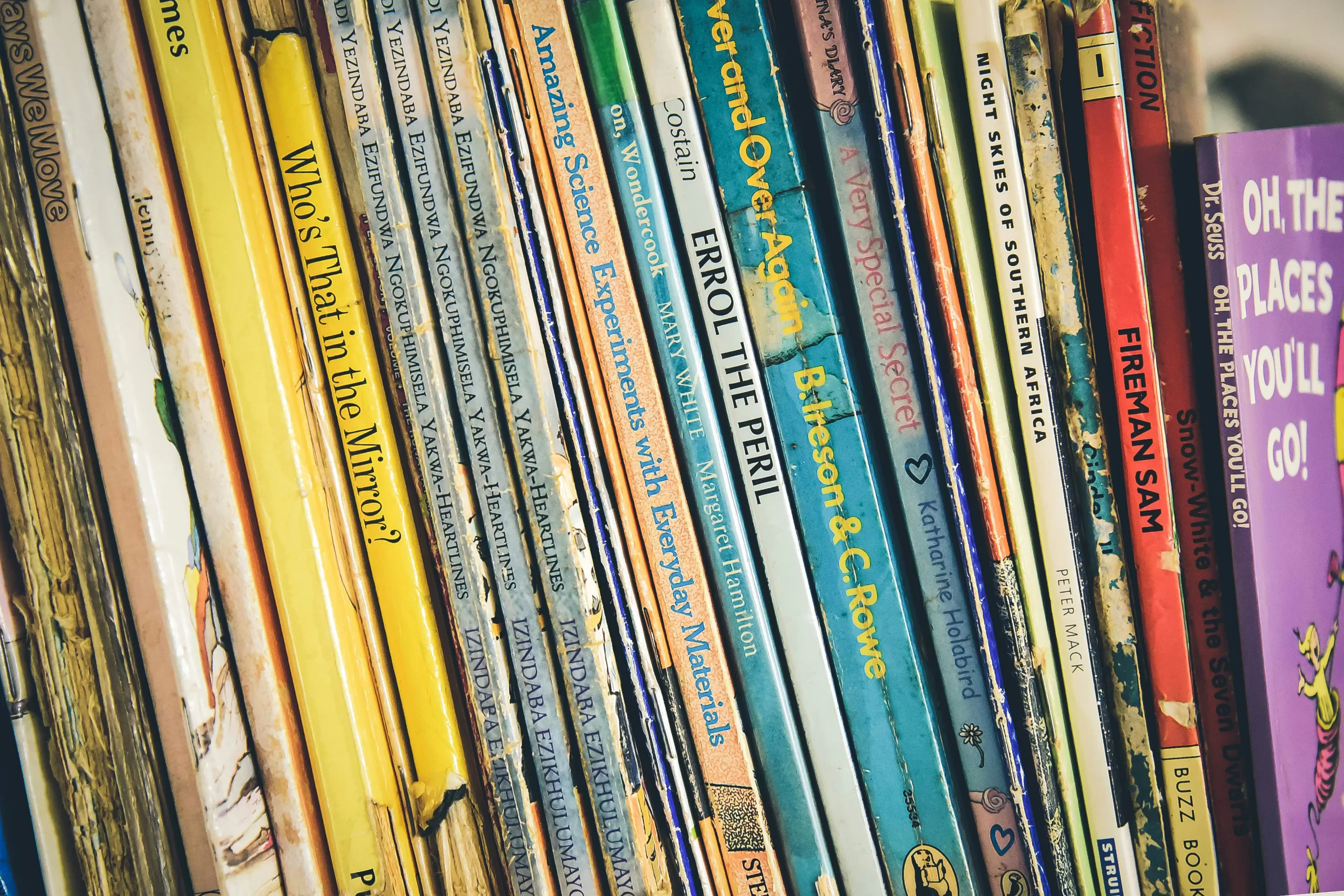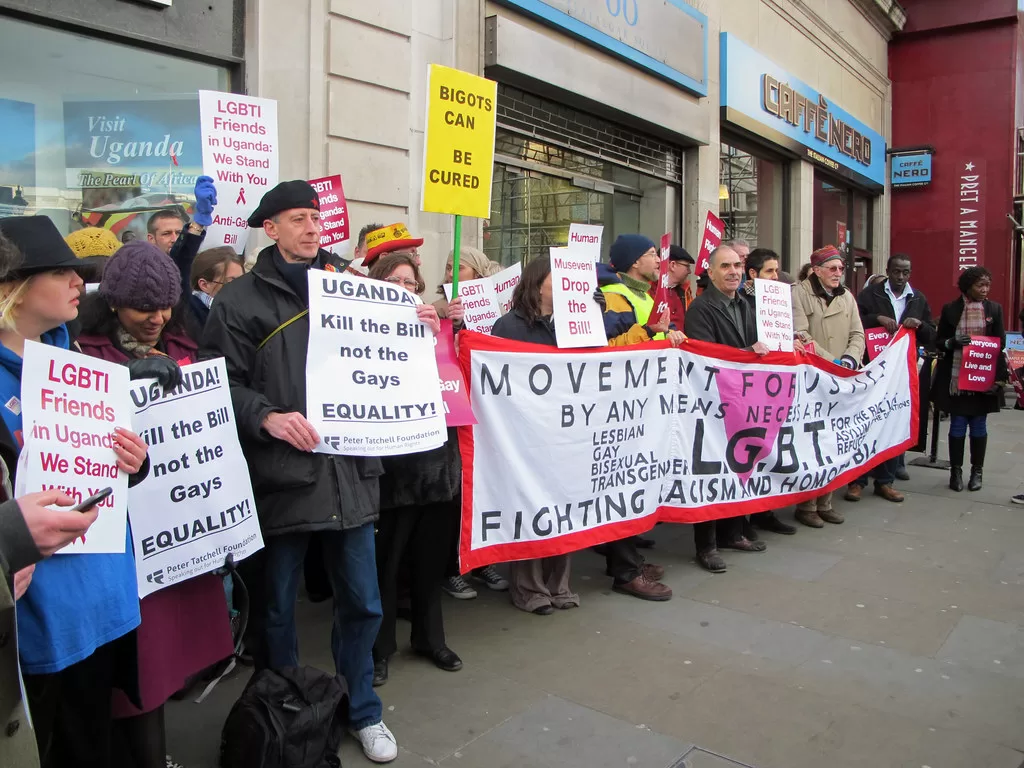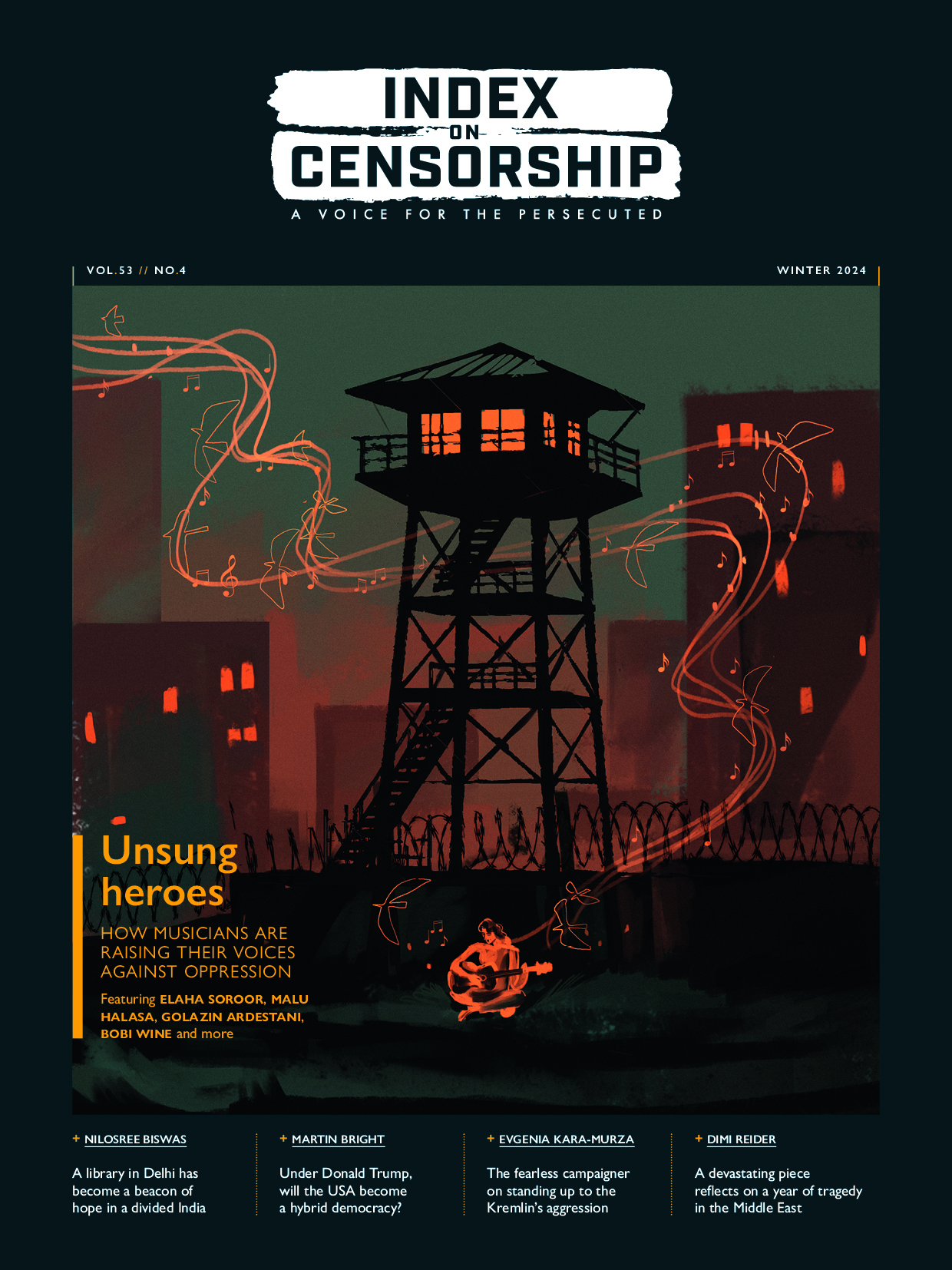Featured
“In a fascist regime, culture becomes propaganda”: concerns over growing censorship in Israel
Israeli filmmakers and academics have responded to the government’s crackdown on cultural institutions that depict the events of 1948 and showcase Palestinian history
By Ben Lynfield

Latest news
-

Why can’t we just ban politicians from lying?
An outright ban on intentional deception would be unenforceable, lead to self-censorship and do nothing to tackle the disinformation plaguing socia...
-

Index pays tribute to Israeli journalist and human rights activist Oded Lifshitz
Lifshitz, who was killed after he was taken hostage during the 7 October massacre, was an ardent campaigner for Palestinian rights
-

Elon Musk’s attack on public broadcasters is destroying Reagan’s Cold War legacy
Once lauded as bastions of American patriotism, media outlets such as Radio Free Europe and Voice of America are now being labelled enemies of the ...
-

Could Donald Trump’s administration be a double-edged sword for free speech?
We speak with the USA-based non-profit Foundation for Individual Rights and Expression (FIRE) about the new president's complicated approach to fre...
Nominate a freedom of expression champion
Our Freedom of Expression Awards recognise those on the frontline of free expression and whose work has contributed significantly to confronting censorship – specifically in repressive regimes around the world.
There are awards in the Arts, Campaigning and Journalism categories and a special award chosen by Index on Censorship’s trustees.
Do you know an individual or organisation who could be one of our 2025 award recipients?
Be the first to hear from uncensored writers and artists
For over 50 years, Index has published work by censored writers and artists. Subscribe to our email newsletter to get regular updates from our incredible contributors.
Spotlight: LGBT+ History Month
-

Saudi Arabia’s hosting of the 2034 World Cup is just another attempt at sportswashing
Undemocratic states that seek to exploit soft power to hide their human rights abuses should be condemned, not celebrated
-

Banned: school librarians shushed over LGBT+ books
A special investigation reveals more than half of UK school librarians surveyed by Index have been asked to remove books from their shelves
-

Calls to sanction architects of Uganda’s Anti-Homosexuality Act grow
Uganda's LGBTQ+ community live in fear for their lives following the passage of draconian legislation in Uganda last year. The international commun...
-

What does Tusk’s victory mean for oppressed groups in Poland?
The ousting of the Law and Justice party after eight years in power is cause for celebration, but change will not happen overnight
Support us in our important work
Index relies entirely on the support of donors and readers to do its work.
Help us free jailed dissidents, amplify silenced musicians and keep up the pressure on authoritarian governments.
MAGAZINE
LATEST ISSUE: VOLUME 53.04 WINTER 2024
Unsung heroes: How musicians are raising their voices against oppression
Music has been described as a “cultural universal” – a practice found in all known human cultures and societies. While anthropologists still scratch their heads over exactly where the concept originated, evidence indicates that humans have used musical instruments for an astonishing 40,000 years.
During an excavation in 1995 in Slovenia, researchers discovered a bear’s femur bone with holes in it and concluded that it could be an ancient flute.
Humans have always found ingenious ways to make music, and it’s not difficult to see why. It is one of the most powerful forms of self-expression, capable of eliciting both intense happiness and sadness in the listener. It is used to celebrate, lament, respect and enrage, and its endless genres, styles and instruments form a core part of countries’ unique cultural heritages.
But despite its universality, music is being silenced globally. Religious extremism, political factions, racism and nationalism are all driving forces, stopping it being performed, produced and listened to. In this issue we explore how music bans have been weaponised to silence communities and erase histories.
Uncensored gallery
Index commissions censored and exiled artists from around the world to illustrate our magazine covers and feature stories. You can view some of their work here

